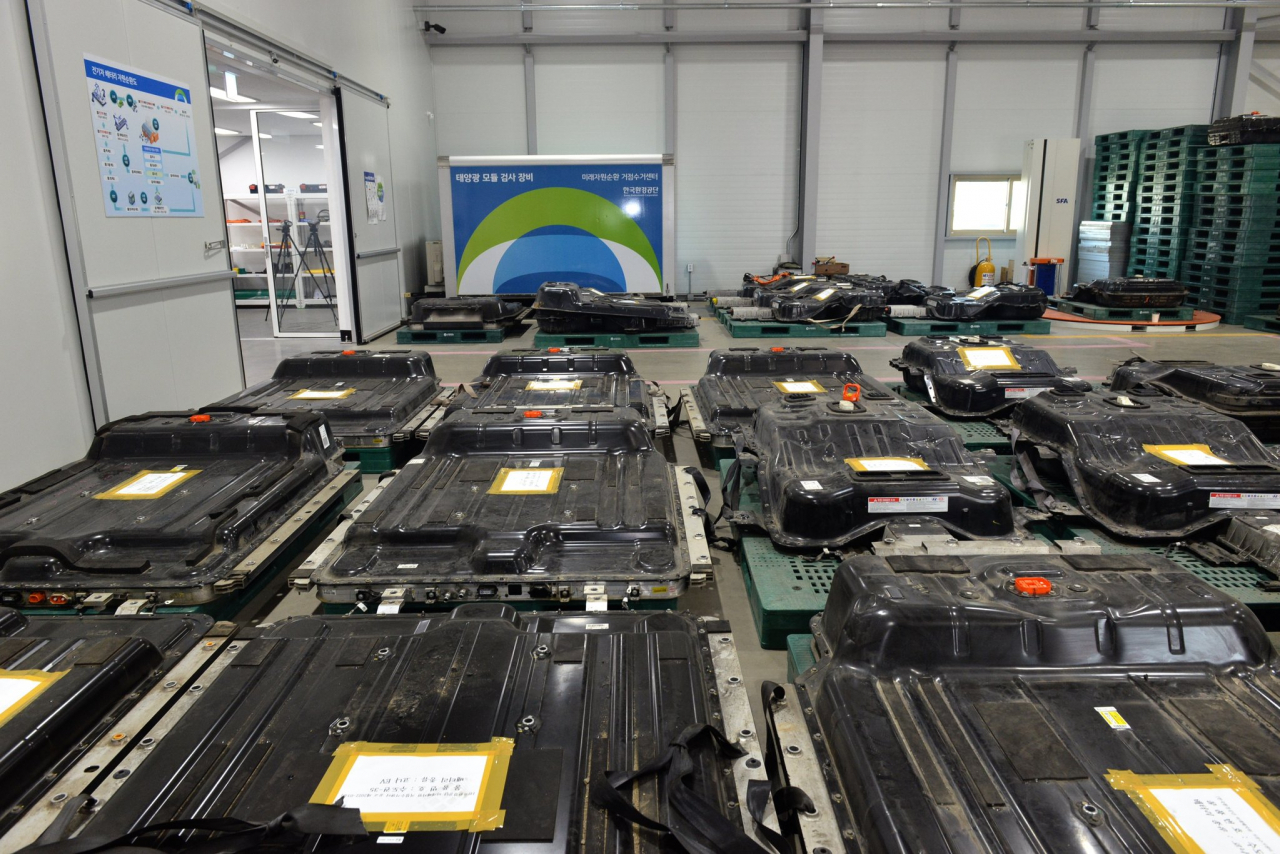 |
Discarded electric vehicle batteries are stored at a recycling center in Siheung, Gyeonggi Province. (Korea Environment Corporation) |
Starting in 2027, consumers in Korea can look forward to purchasing more affordable electric vehicles equipped with reconditioned and tested used batteries.
The Korean government, during a meeting chaired by Deputy Prime Minister and Minister of Economy and Finance Choi Sang-mok on Wednesday, unveiled a plan to support the used battery industry, announcing a series of laws, systems, and infrastructure projects. This initiative aims to tackle the growing environmental issue of waste batteries by creating a structured system for reuse and recycling.
As part of the new plan, the government will require performance evaluations of EV batteries before they are removed from vehicles. From 2027 onwards, rather than scrapping EV batteries along with other vehicle components, vehicle owners must get a mandatory performance evaluation by the Ministry of Land, Infrastructure, and Transport before removing the battery. Insurers must arrange for this evaluation in the event of an accident, and manufacturers must do so in the case of a recall.
The performance evaluation will assess the batteries' remaining capacity, cell voltage deviation, and maintenance, inspection, or recall records. After evaluation, batteries will be categorized into three grades: remanufactured, reused or recycled.
Remanufactured batteries can be rebuilt into EVs after necessary repairs. Reused batteries, although unsuitable for EVs, can be repurposed for other products like energy storage systems. Recycled batteries, often cosmetically damaged, will be processed to extract valuable metals such as lithium, cobalt, and nickel.
Once graded, the batteries will be sold to relevant companies for their respective applications. For remanufactured batteries, the government plans to require automakers to purchase and reassemble them into new EVs. These vehicles will be clearly labeled as containing reassembled used batteries to ensure transparency.
“Currently, when an electric car is scrapped, its battery is usually discarded along with it, and owners often don’t realize its value. The upcoming changes mean owners will have their batteries appraised before removal, so they’ll know exactly what it’s worth and receive proper compensation,” an official from the transport ministry explained.
In addition to these measures, the government announced plans to introduce a renewable raw material certification system by 2025. This initiative is in response to new European Union regulations requiring new batteries to contain specific percentages of recycled materials, such as 16 percent cobalt, 85 percent lead, and 6 percent lithium-nickel, by 2031. To help Korean battery exporters meet these international standards, the government aims to establish a globally recognized certification system, reducing the need for expensive international certifications.



![[Today’s K-pop] Blackpink’s Jennie, Lisa invited to Coachella as solo acts](http://res.heraldm.com/phpwas/restmb_idxmake.php?idx=644&simg=/content/image/2024/11/21/20241121050099_0.jpg)



